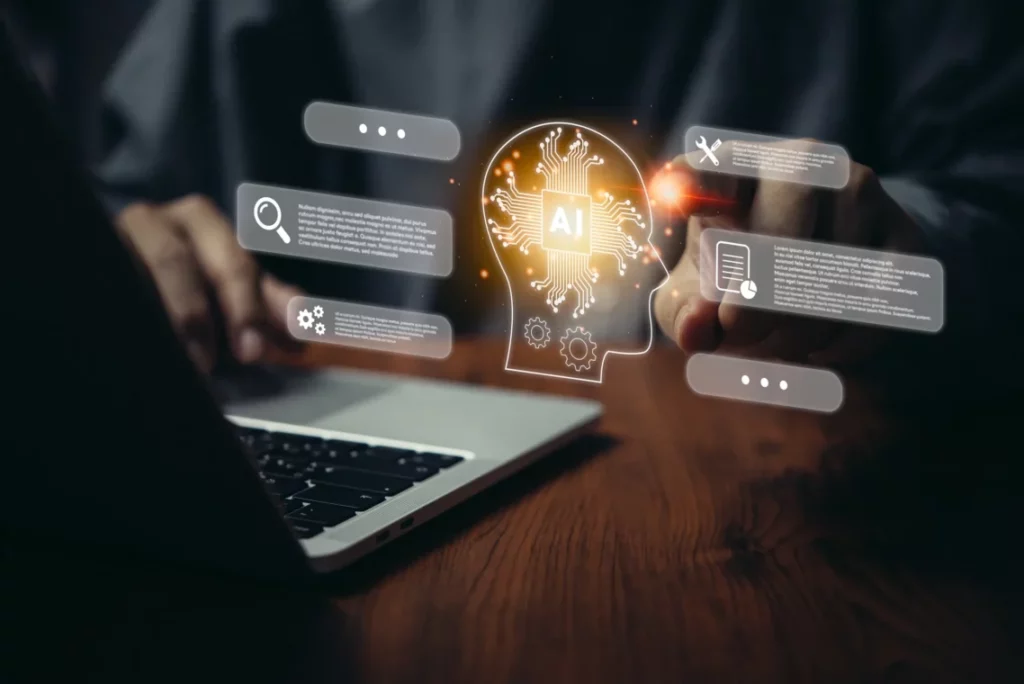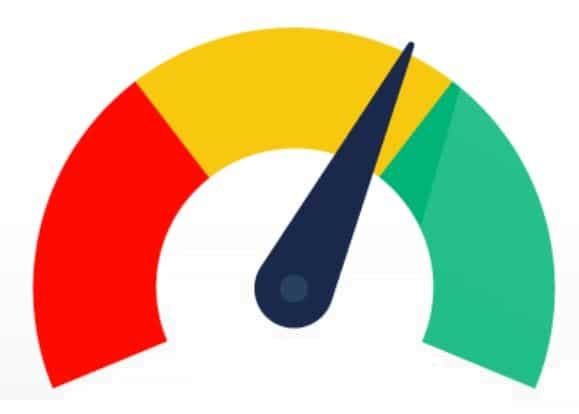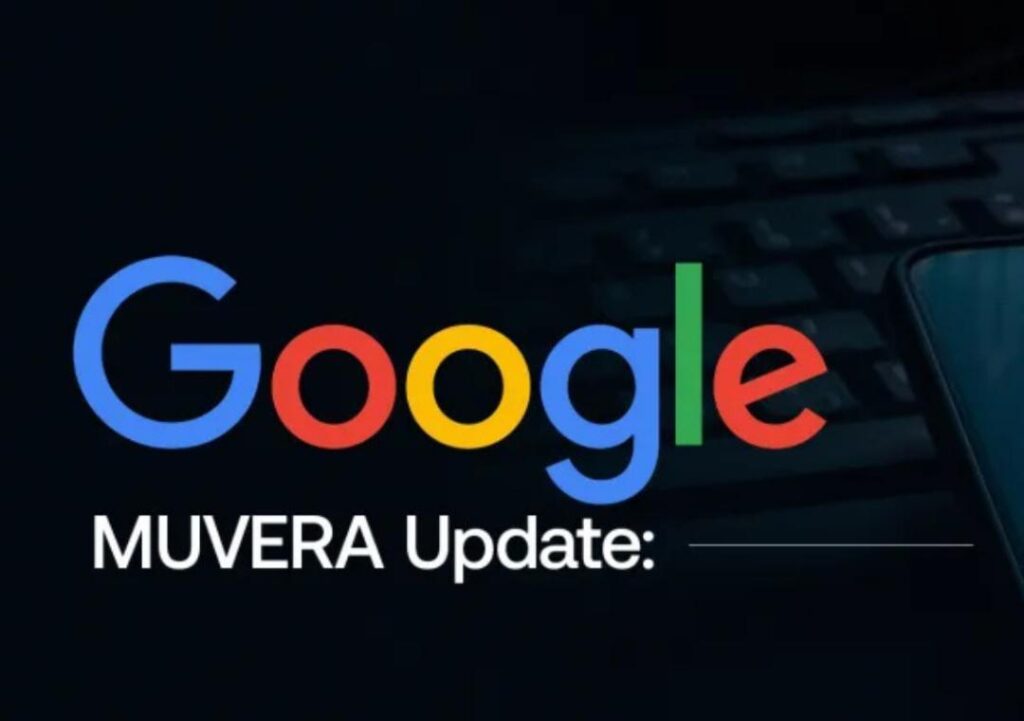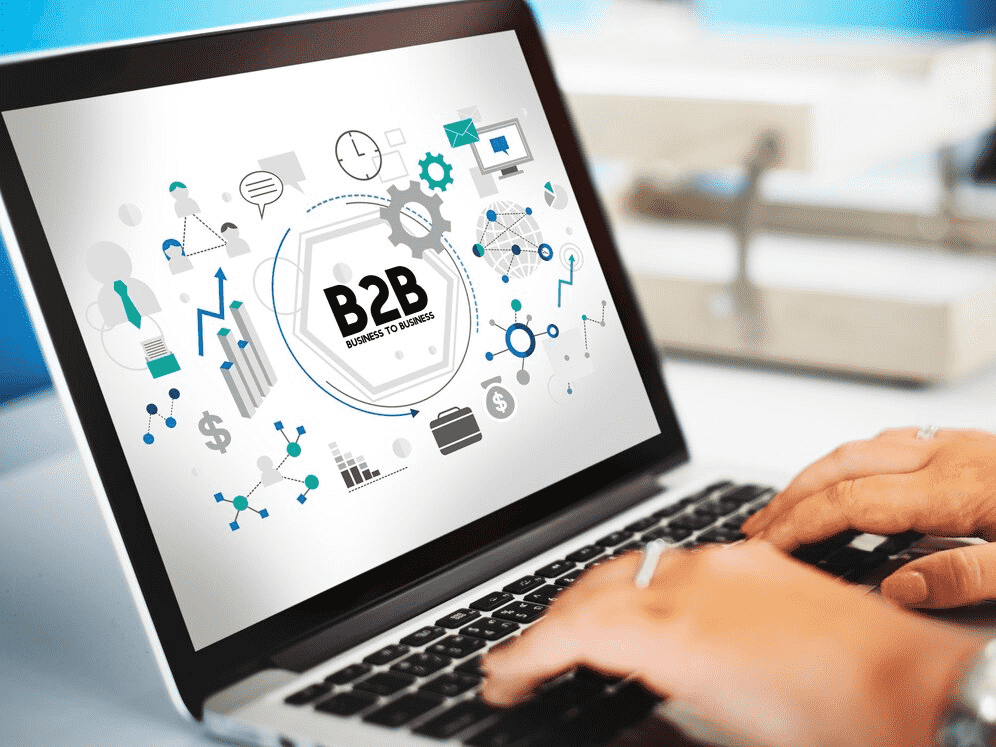Artificial Intelligence (AI) is rapidly transforming the digital marketing landscape. What was once limited to basic automations—like scheduled email campaigns or elementary customer segmentation—has evolved into a highly dynamic ecosystem where AI agents can interpret complex data, adapt to shifting customer needs, and deliver personalized content across multiple platforms, including email marketing, landing pages, and social media. A recent study by Gartner predicts that by 2027, 75% of marketing organizations will be using AI in at least one marketing function, up from 30% in 2023 [Source: Gartner, 2024].
This shift goes far beyond a technological upgrade—it represents a profound rethinking of how businesses engage, convert, and retain their target audience. From AI-powered analytics tools and landing page optimization to social media marketing platforms enhanced with AI Assist or Notion AI, the use of AI technologies has become indispensable. AI-enabled bots and generative content tools like ContentShake AI are enabling real-time personalization and smarter campaign execution. For Chief Marketing Officers, adopting a future-ready AI tech stack is no longer optional—it’s essential, with companies reporting an average 25% increase in marketing ROI after AI implementation [Source: Forbes, 2023].
Why AI for Digital Marketing Now?
Several converging forces have made AI the centerpiece of modern marketing tools and strategy:
- Rapid advancements in generative AI and deep learning, especially with Large Language Models (LLMs) and breakthroughs in Natural Language Processing (NLP), are empowering marketers with capabilities that were once unthinkable. The global market for generative AI in marketing is expected to reach $21.5 billion by 2030 (Source: Grand View Research, 2022).
- Consumers now expect personalized, real-time interactions across digital channels. Email marketing tools and AI-powered social media platforms are enabling marketers to meet those expectations with precision. Research shows that 71% of consumers expect personalization from companies [Source: McKinsey & Company, 2021].
- AI-powered search interfaces like Google’s AI Overviews and Search Generative Experience (SGE) are reshaping how users discover content, requiring marketers to rethink search engine optimization (SEO) strategies.
Today, marketers are no longer just vying for attention—they’re competing for relevance and credibility in a world where AI systems mediate discovery. Crafting content that resonates with both humans and machines is now a core competency. Clear, data-driven messaging, optimized for visual search and semantic understanding, is what separates high-performing marketing from the rest. In this article, we’ll explore how marketing teams can strategically harness AI marketing tools to boost organic performance, increase customer loyalty, and drive ROI. We’ll also examine how automation—when aligned with analytics tools and customer insights—can enhance project management, streamline content production, and unlock the full power of AI-enhanced search.
Defining AI Marketing: Beyond Automation in Marketing
What Is AI Marketing?
AI marketing refers to the integration of artificial intelligence technologies into marketing workflows to enhance, automate, and intelligently optimize operations. Unlike traditional marketing tools that operate based on static rules, AI marketing tools analyze behavior, adapt in real-time, and make autonomous decisions to improve performance across all stages of the customer journey—from awareness to conversion and retention. In practice, AI marketing encompasses a wide array of capabilities designed to address evolving customer needs:
- Analyzing massive datasets to uncover hidden patterns and behavioral trends using data analytics.
- Generating and personalizing content for email campaigns, landing pages, or social media platforms at scale.
- Automating decisions in advertising, campaign targeting, and engagement based on predictive modeling.
- Continuously refining campaigns based on real-time analytics feedback and audience behavior.
This is more than just a time-saving measure—it’s a transformative approach that enables hyper-personalization and precise messaging previously unattainable through manual methods alone.
Key Techniques Behind Marketing AI Automation
The modern AI marketing stack is built on several key interrelated disciplines and technologies:
- Machine Learning (ML): Predicts future user actions such as click-through rates or product purchases by learning from historical behavior.
- Traitement du langage naturel (Natural Language Processing – NLP): Allows machines to understand, interpret, and generate human-like text, powering chatbots, AI-enabled bots, and SEO content tailored to user intent.
- Generative AI: Uses large language models to produce content like blog posts, ad copy, or email marketing messages—automatically and at scale.
- Predictive Analytics: Informs timing, segmentation, and messaging strategies by forecasting customer behavior with increasing precision.
- Computer Vision: Enables AI to evaluate visual elements in ads, product images, or videos for brand alignment and visual search optimization.
By leveraging these technologies, marketing teams can engage with their target audience in highly tailored, contextual, and efficient ways, often with the support of tools like Notion AI or ContentShake AI. These capabilities extend across the tech stack, empowering both tactical execution and strategic planning.
How AI Changes the SEO Game
AI isn’t just a new layer—it’s a fundamental rewrite of how search engine optimization works. Here’s how AI is reshaping this space: Traditional SEO meets AI:
- AI marketing tools now automate tasks like keyword research, topic clustering, and content gap detection, using algorithms that can interpret search intent and user context.
- AI can detect and resolve technical SEO issues like broken links, duplicate content, or crawlability errors more efficiently than manual audits.
- AI-powered tools analyze vast datasets to predict emerging search trends and identify content opportunities before they become mainstream.
- Machine learning models can personalize content recommendations and user experiences on websites, indirectly boosting engagement signals valuable for SEO.
- AI assists in competitive analysis by quickly processing competitor strategies, keyword rankings, and backlink profiles at scale.
- For local SEO, AI can optimize Google My Business listings and analyze local search patterns to improve visibility.
- AI also plays a role in optimizing for voice search, understanding natural language queries and providing relevant, concise answers.
All this—with human steering, judgment, and review to ensure quality and alignment with brand goals. Optimizing for AI-Powered Search: With the rise of AI Overviews and Google’s AI mode search engine optimization now means optimizing for users as well as machines that summarize and extract information. To succeed in this dual environment:
- Deliver clear, concise answers to common user queries that AI models can easily summarize.
- Use structured formats (e.g., FAQs, bullet points, subheadings) to help AI Assist systems extract relevant content.
- Build topical authority through comprehensive content clusters and interlinked resources.
- Focus on accuracy—direct, well-sourced statements are more likely to appear in AI summaries.
- Provide factual information, statistics, and useful unique data as possible.
- Content freshness is key—Make sure your content is up-to-date.
In today’s landscape, succeeding in SEO means writing for both humans and intelligent systems—bridging clarity, authority, and technical precision.
How AI Solutions Work in Marketing
At a high level, AI-powered marketing tools operate in three fundamental areas:
Data Analysis & Insight Generation
AI ingests vast datasets—from CRM platforms, web behavior, social listening, and more—to surface actionable insights about audience preferences, behaviors, and buying signals. This enables deep personalization and smarter campaign targeting.
Task Automation
From email marketing tools automating sequences to AI-enabled bots managing chat flows, repetitive workflows are offloaded to AI so marketers can focus on creative and strategic work.
Personalized Content Delivery
AI agents determine what content or offer to show which user and when—based on behavioral triggers, contextual signals, and predictive models—on landing pages, social media, or email. This level of individualization drives engagement, loyalty, and higher ROI. These capabilities form the foundation of intelligent, AI-first marketing ecosystems—where every touchpoint is optimized to reflect customer needs and deliver results.
Key Use Cases and Benefits Marketing Content Automation
Marketing AI automation isn’t a single tool or tactic—it’s an integrated ecosystem of intelligent technologies that optimize execution, enhance customer loyalty, and improve decision-making across every touchpoint. By embedding AI throughout the tech stack, marketers unlock new levels of performance, efficiency, and personalization.
Types of AI Marketing Technologies
Predictive AI
Predictive analytics uses machine learning to forecast future outcomes based on historical and real-time data. In marketing, this means:
- Predicting customer needs such as purchase likelihood or churn risk.
- Optimizing the timing of email campaigns, landing page offers, and retargeting ads.
- Segmenting audiences with precision to personalize outreach.
This empowers chief marketing officers and teams to make proactive, data-driven decisions that directly impact revenue and retention.
Conversational AI
Using Traitement du langage naturel (NLP), AI-enabled bots and chat assistants can hold dynamic, human-like conversations with users. They serve roles such as:
- 24/7 support via social media platforms or websites.
- Automated qualification of inbound leads.
- Real-time product suggestions in conversational commerce environments.
Not only does this reduce operational costs, but it significantly improves user experience and lead engagement.
Generative AI
Fueled by Grands modèles de langage like GPT, generative AI automates content creation at scale. Applications include:
- Writing blogs, landing page copy, and social media marketing posts.
- Creating personalized content for email marketing using tools like Notion AI or ContentShake AI.
- A/B testing variations of ad copy or product descriptions instantly.
This allows marketing teams to maintain high-quality output while saving significant time on production.
Tangible Benefits for Marketers
AI doesn’t just automate—it augments. Key benefits of marketing AI automation include:
- Faster Campaign Execution: AI cuts down manual workflows—from content generation to performance reporting—speeding up the path to market.
- Higher Conversion Rates: Delivering content tailored to behavioral triggers—on landing pages, in email campaigns, or across social media platforms—increases engagement and action.
- Precision Segmentation: Group users based on intent, interaction, or even emotional signals detected through IA émotionnelle and advanced analytics.
- Improved Customer Service: AI agents and chatbots resolve issues instantly, helping to build trust and long-term customer loyalty.
- Scalable Personalization: Serve individualized content experiences at every stage of the funnel, for thousands of users simultaneously.
- Enhanced Productivity: Free your team from repetitive tasks to focus on creative direction, project management, and strategic alignment.
Practical Applications of AI in Marketing Workflows
Here’s how AI tools are actively reshaping day-to-day marketing functions:
- Predictive Analytics: AI tools assess behavioral signals to anticipate upsell potential or identify drop-off points in the customer journey.
- Product Recommendations: Deliver tailored suggestions on landing pages or within email marketing tools, increasing basket size and satisfaction.
- Automated Content Creation: Generate blog posts, product blurbs, video scripts, or even visuals through generative AI.
- Campaign Optimization: Real-time adjustments to audience targeting, ad bidding, and content placement based on data analytics.
- A/B Testing at Scale: AI analyzes performance variations rapidly and suggests improvements for future iterations.
- Customer Journey Mapping: AI builds intelligent, dynamic flows based on real-time user interactions and preferences.
These examples are not theoretical—they’re already being executed by leading brands using AI agents and intelligent marketing tools to stay ahead of the competition.
Specific SEO & AI Search Applications
As search engine optimization evolves, AI plays a critical role in driving organic performance. Here’s how:
- AI-Powered Keyword Research: Platforms like SEMrush, Surfer SEO, and MarketMuse use deep learning to identify keyword clusters, long-tail opportunities, and intent-based phrases.
- Content Optimization for AI Overviews: Structure pages with clearly defined answers and rich semantics to increase visibility in AI-generated summaries.
- Automated Metadata Generation: Use NLP to create high-performing title tags, meta descriptions, and even schema markup—at scale.
- SERP Feature Targeting: Discover and optimize for featured snippets, image carousels, and video results using visual content analytics.
- Competitor Gap Analysis: AI tracks competitor strategies, uncovering underserved content areas for strategic content creation.
SEO today is about building content that performs in both traditional rankings and AI-powered results—a dual landscape that requires precision, structure, and adaptability.

Navigating the Challenges of AI in Automation in Marketing Implementation
While AI technologies offer enormous promise, realizing their full potential in marketing demands more than just deploying tools—it requires a careful balance of strategy, governance, and technical readiness. Without this, even the most powerful AI marketing tools can underperform or introduce risk. Let’s explore the core challenges marketers face when adopting AI-driven automation—and how to address them effectively.
Data Accuracy and Quality
AI’s effectiveness hinges entirely on the quality of its data inputs. Data analytics and decision-making engines trained on poor or fragmented datasets will inevitably produce flawed outputs, misaligned content, and wasted spend. Common data challenges include:
- Siloed CRM systems that don’t integrate with other marketing tools like email marketing platforms or social media marketing dashboards.
- Inaccurate attribution models across landing pages, email campaigns, and ad channels.
- Inconsistent customer data that impairs target audience segmentation and behavioral predictions.
Solution: Invest in unified analytics tools and robust Customer Data Platforms (CDPs) that collect, cleanse, and update data in real-time. These platforms give AI systems a reliable foundation to deliver relevant insights and personalized experiences based on actual customer needs.
Training and Customization of AI Models
Prebuilt AI solutions offer ease and speed—but for lasting strategic advantage, AI must reflect your brand, your audience, and your goals. That means investing in customization. Challenges include:
- Limited internal expertise in configuring or fine-tuning Grands modèles de langage or deep learning algorithms.
- The resource burden of training models aligned to brand-specific data and tone—especially across content types like blog posts, email marketing, or social media platforms.
- Difficulty aligning generic outputs from tools like Notion AI or ContentShake AI with existing brand voice or creative strategy.
Solution: Start with AI Assist tools that allow for layered control—such as prompt customization, rules-based editing, or supervised learning environments. Partner with AI-focused agencies or consultants to align model behavior with brand standards and campaign objectives.
Data Privacy and Ethical AI Use
Modern consumers—and regulators—demand transparency about how brands collect and use data. As AI becomes more involved in personalization, targeting, and recommendation systems, ethical practices become non-negotiable. Key concerns:
- Ensuring transparency in how AI agents recommend content or offers across channels.
- Maintaining compliance with GDPR, FADP, and evolving privacy regulations across jurisdictions.
- Preventing algorithmic bias or discrimination in predictive scoring or personalization models.
Solution: Adopt clear consent protocols and make it evident when users are interacting with AI-enabled bots or AI-generated content. Regularly audit models—especially those using sensitive customer data—to eliminate hidden bias. Choose technology partners committed to ethical intelligence artificielle development.
The New Challenge of AI Optimization: Dual Search Realities
A rising complexity in the search engine optimization landscape is the need to optimize for two types of content consumers:
- Human users, who favor detailed, immersive content.
- AI summarization engines (like Google SGE), which prioritize clear, fact-based, and easily extractable content.
This duality creates tension:
- Should content focus on narrative and storytelling for user depth?
- Or prioritize structured summaries, bullet points, and FAQs that AI marketing tools can lift into search results?
Solution: Embrace a dual-layer content strategy:
- Use long-form content and structured metadata to build topical authority and serve human readers on traditional search channels.
- Integrate short, crisp summaries, landing page highlights, and FAQ sections tailored to AI technologies and semantic parsing engines.
This approach ensures visibility across both human and AI-driven discovery environments. In short, AI marketing success is not just about adopting automation—it’s about doing so responsibly, strategically, and with full awareness of the underlying infrastructure required. Chief marketing officers who approach AI as an extension of their broader project management and governance responsibilities—rather than as a magic bullet—will gain a lasting advantage.
Real-World Examples of AI Marketing Strategies in Action
AI marketing is no longer a distant vision—it’s actively shaping brand experiences, boosting ROI, and transforming how organizations connect with their target audience. From email marketing tools to AI-enabled bots, companies across industries are applying AI technologies to deliver smarter, more personalized campaigns at scale. Here are some tangible examples that illustrate how intelligence artificielle is changing the game.
Adidas: Personalized Product Recommendations Driving Conversion
Adidas, the global sportswear brand, leveraged AI marketing tools to enhance customer engagement on its e-commerce platforms. By integrating AI-powered recommendation engines, the brand delivered hyper-relevant product suggestions based on user behavior, browsing patterns, and purchase history. Results:
- Increased conversion rates on product pages.
- Stronger customer loyalty due to personalized, relevant experiences.
- Boosted average order value through dynamic cross-selling.
This implementation showcases how predictive analytics and real-time personalization—key components of a modern AI tech stack—can drive both immediate sales and long-term customer value.
Renault: Reducing Service Wait Times with Conversational AI
Renault, a leading European car manufacturer, deployed conversational AI across its websites to streamline support and boost lead generation. Using AI-enabled bots, the brand improved customer interactions with tools capable of answering questions, guiding visitors, and routing high-value queries to human agents. Use Cases:
- 24/7 digital assistance for questions on financing, features, or availability.
- Seamless transition from AI chatbot to human support for complex requests.
- Lead capture for test drives and dealership appointments.
Outcomes:
- Reduced average customer service wait times.
- Higher satisfaction scores from digital channels.
- Enhanced efficiency and lead quality through intelligent automation.
This is a clear win for emotional AI (IA émotionnelle) and natural language processing (Traitement du langage naturel)—technologies that enable smooth, human-like customer interactions at scale.
Media Company Using AI for SEO at Scale
Imagine a major European publisher managing thousands of articles across verticals—competing not just in traditional SEO, but also within AI-powered search experiences like Google’s SGE. To stay ahead, the company integrates a full-stack AI marketing solution using tools like ContentShake AI, Notion AI, and custom deep learning models. AI applications include:
- Clustering high-potential keywords using search engine optimization data and predictive algorithms.
- Auto-generating optimized meta titles, schema markup, and landing page summaries.
- Producing TL;DRs and structured content that AI systems can easily summarize in search results.
- Using visual search analysis to optimize imagery for SEO-rich content formats.
Impact:
- 40% increase in organic traffic in six months.
- Frequent inclusion in Google SGE summaries for high-intent queries.
- Faster publishing cycles thanks to automated workflows and project management integration.
This scenario, while hypothetical, represents real strategies already in motion across media and content-heavy brands adopting AI agents and AI Assist to scale SEO, editorial, and engagement efforts. These examples demonstrate a powerful truth: when used strategically, AI marketing tools can streamline workflows, enhance email campaigns, personalize landing pages, and amplify content reach across social media platforms and search engines. More than just automation, AI is becoming the creative and analytical brain behind next-generation marketing.

The Future of Marketing is Intelligent
Artificial intelligence is not a passing trend—it’s becoming the foundational force behind modern digital marketing. As we’ve explored, AI technologies are transforming how brands understand their target audience, automate campaigns, and deliver personalized experiences across every channel—from email marketing to social media platforms. Whether it’s through generative AI tools like ContentShake AI, advanced data analytics engines, or Grands modèles de langage capable of powering real-time interactions, today’s marketers have access to a powerful suite of marketing tools. These tools are not just accelerating execution—they’re unlocking new levels of insight, agility, and impact. The rise of AI-enhanced search, including experiences like Google’s SGE, has added another layer of complexity—and opportunity. Marketers must now optimize for dual environments: long-form, traditional search engine optimization (SEO), and concise, structured content suited for AI-enabled bots and summarization engines. This demands a strategic blend of detailed content and machine-readable formats like bullet points, landing pages, and FAQ sections that cater to both humans and AI systems. To thrive in this new landscape, Chief Marketing Officers and digital leaders must rethink their tech stack, integrating intelligent solutions into every stage of the customer journey. This includes:
- AI-powered email marketing tools for crafting personalized campaigns.
- Analytics tools that uncover evolving customer needs and behavior.
- Emotional AI (IA émotionnelle) systems that enable more human-centric messaging.
- AI-driven project management platforms that accelerate coordination and execution.
But with this power comes responsibility. The future of marketing will also be shaped by how ethically and transparently AI is implemented. Trust, consent, and responsible data use must remain core principles—especially as regulations like GDPR and evolving consumer expectations continue to raise the bar. That’s where trusted partners like SEO Transformer play a crucial role. By offering guidance on AI governance, strategic deployment, and tool selection, they help businesses move beyond fragmented adoption and unlock AI’s full potential. In the coming years, marketers who embrace intelligence artificielle not just as a set of tools, but as a strategic mindset—supported by ethical frameworks and data excellence—will lead their industries. They’ll deliver experiences that resonate, content that ranks, and campaigns that convert. Are you ready to future-proof your marketing with intelligent automation? Connect with SEO Transformer today to explore how AI can elevate your strategy, supercharge your performance, and transform every touchpoint into a personalized, data-driven opportunity.








